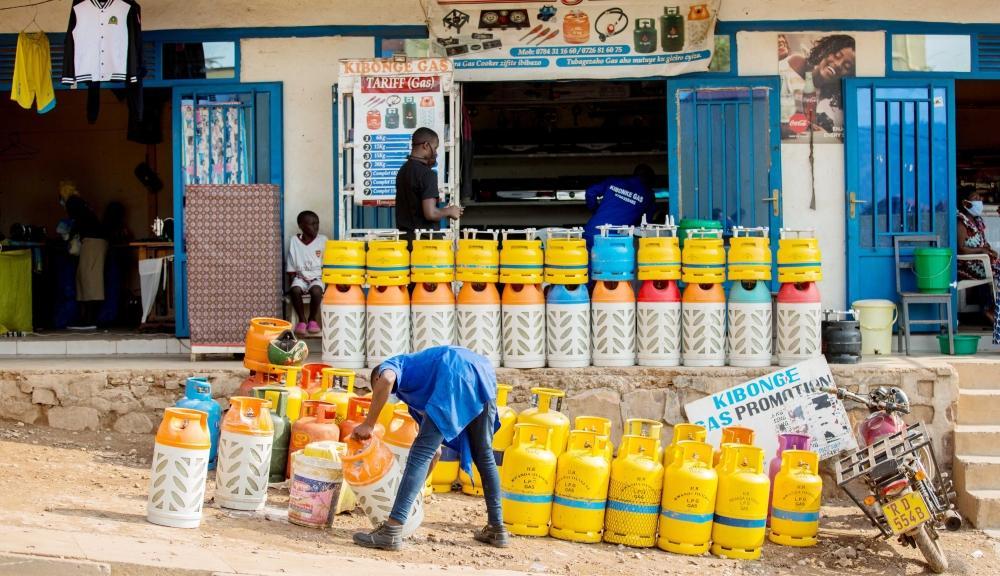Africa-Press – Rwanda. The uptake of electric, liquefied petroleum gas (LPG), and ethanol cooking stoves, which are part of efficient cookstoves, is set to increase from three per cent in 2024 to 27 per cent by 2029, according to a new five-year plan by government.
A new energy policy, released on February 17, supports the plan with the aim to increase the availability and affordability of clean cooking solutions.
The long-term strategy is to transition from wood and charcoal fuel consumption to clean and efficient fuels and technologies by 2035.
Electric stoves, one of the solutions to replace firewood and charcoal use, generate heat that is transferred to a cooking surface. They are safer for indoor air quality.
However, electric stoves tend to consume a lot of electricity, which could lead to higher utility bills.
To address this challenge, the new energy policy seeks to reduce electricity tariffs as the government aims to make energy more affordable for households.
Lower tariffs, the Ministry of Infrastructure said, will encourage the use of electricity for cooking and other activities, reducing dependence on biomass.
LPG stoves, which will also be prioritized, use gas stored in pressurized cylinders and produce fewer pollutants compared to wood or coal stoves.
Ethanol stoves to also help replace charcoal and firewood for cooking burn ethanol as fuel.
The ethanol is often in liquid form and stored in a container that feeds the stove. When ignited, ethanol burns cleanly and produces a steady flame for cooking.
Ethanol, which is derived from plant-based materials such as sugarcane or corn, is a renewable energy source that burns with minimal particulate matter, producing almost no smoke, making it better for indoor air quality than wood or coal.
Improved cookstoves to use less wood, charcoal
Improved cookstoves, which use less wood, charcoal, and other biomass energy, are expected to grow from 9 to 22 per cent by 2029.
The number of households using clean and efficient stoves is expected to increase from just over one million to about three million by 2029, reducing reliance on biomass and promoting healthier, environmentally friendly cooking alternatives.
Rwanda has made strides in reducing reliance on biomass for cooking, with firewood use dropping from 83 to 76 per cenr largely due to the distribution of 1.4 million improved cookstoves. 34 per cent of households use improved cookstoves in 2022.
The adoption of LPG also rose from one per cent in 2017 to 4.5 in 2022. Rwandan households will not eliminate the use of wood fuels in the short run.
Instead, as the economy develops, wood fuels will be phased out where necessary, according to the Ministry of Infrastructure.
This is based on the fact that, countrywide, charcoal and wood usage accounts for 93 per cent of national cooking energy needs.
Biomass is already in short supply, with the country facing a biomass deficit of over 4 million cubic meters per year.
Currently, methane gas resources are also being exploited for other applications, such as clean cooking and electricity generation.
The new policy will also help review and develop strategies and plans to increase access to cleaner cooking technologies through capacity building and market transformation.
Changes to government subsidies
The policy states that the Ministry of Infrastructure and the Ministry of Finance will reform subsidies for clean cooking technologies to improve the impact and scale-up potential of existing programmes.
The government will also scale up the use of cooking gas by ensuring the availability of storage facilities and last-mile distribution infrastructure for compressed natural gas (CNG) and LPG as cooking gas.
“Updated standards for different clean cooking technologies, such as biogas digesters, installations, and improved cookstoves, shall be formulated and adopted according to ISO and IEC standards to increase consumer choice and affordability,” the policy explains.
The integration of centralized and semi-centralized cooking gas infrastructure into Rwanda’s building code among the plans.
For More News And Analysis About Rwanda Follow Africa-Press






